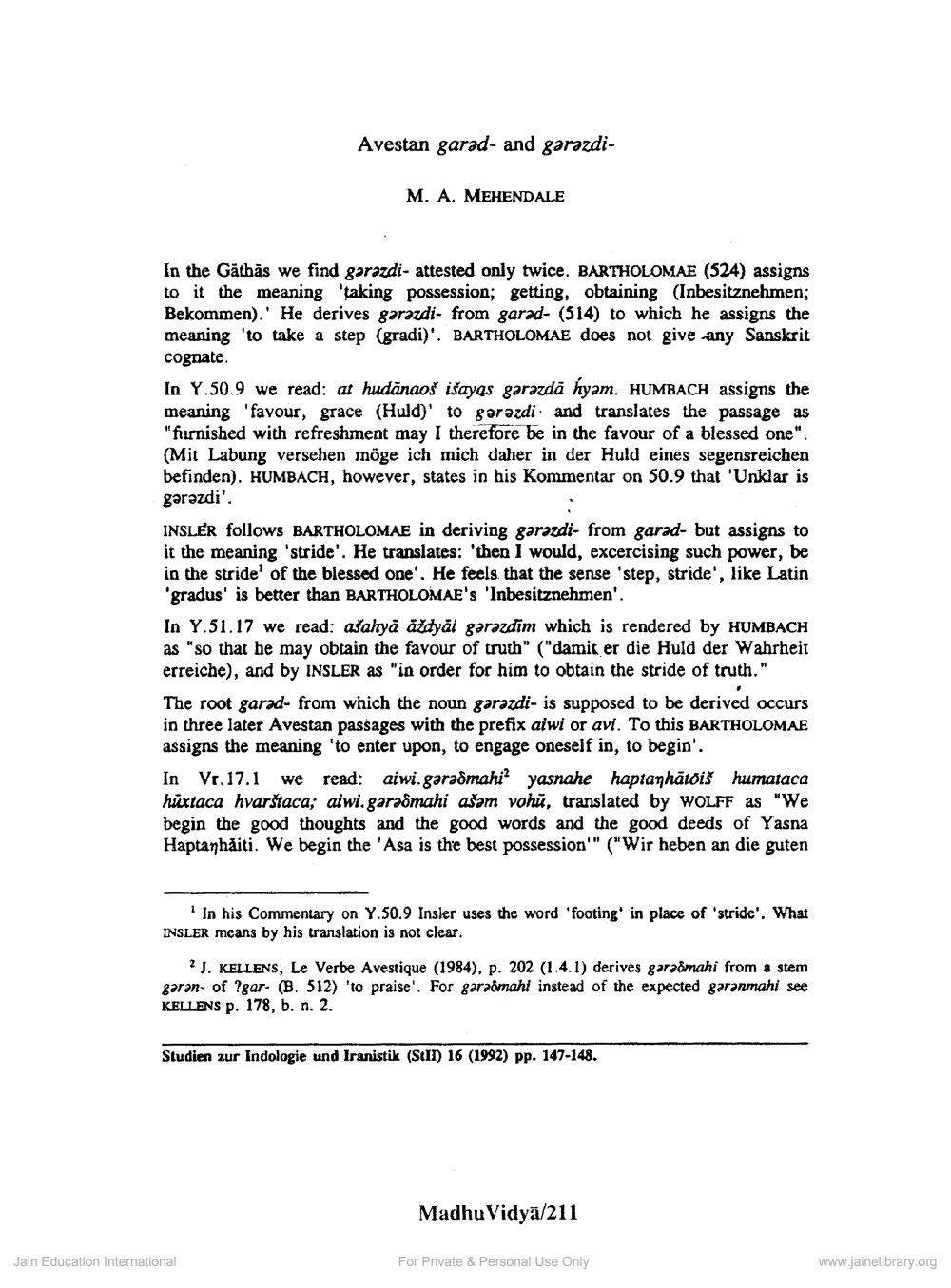________________
Avestan garad- and garazdi
M. A. MEHENDALE
In the Gathas we find garazdi- attested only twice. BARTHOLOMAE (524) assigns to it the meaning taking possession; getting, obtaining (Inbesitznehmen; Bekommen).' He derives gərəzdi- from garad- (514) to which he assigns the meaning to take a step (gradi)'. BARTHOLOMAE does not give any Sanskrit cognate. In Y.50.9 we read: at hudānaoš išayas gərəzdā hyam. HUMBACH assigns the meaning 'favour, grace (Huld)' to gərəzdi and translates the passage as "furnished with refreshment may I therefore be in the favour of a blessed one". (Mit Labung versehen möge ich mich daher in der Huld eines segensreichen befinden). HUMBACH, however, states in his Kommentar on 50.9 that 'Unklar is gərəzdi'. INSLER follows BARTHOLOMAE in deriving garazdi- from garad- but assigns to it the meaning 'stride'. He translates: 'then I would, excercising such power, be in the stride' of the blessed one. He feels that the sense 'step, stride', like Latin 'gradus' is better than BARTHOLOMAE's 'Inbesitznehmen'. In Y.51.17 we read: ašahyā āždyal garazdim which is rendered by HUMBACH as "so that he may obtain the favour of truth" ("damit er die Huld der Wahrheit erreiche), and by INSLER as "in order for him to obtain the stride of truth." The root garad- from which the noun garazdi- is supposed to be derived occurs in three later Avestan passages with the prefix aiwi or avi. To this BARTHOLOMAE assigns the meaning 'to enter upon, to engage oneself in, to begin'. In Vr.17.1 we read: aiwi.garaðmahi? yasnahe haptanhātoiš humataca hüxtaca hvarštaca; aiwi.garamahi ašam vohu, translated by WOLFF as "We begin the good thoughts and the good words and the good deeds of Yasna Haptanhaiti. We begin the 'Asa is the best possession'" ("Wir heben an die guten
In his Commentary on Y.50.9 Insler uses the word 'footing' in place of 'stride'. What INSLER means by his translation is not clear.
? J. KELLENS, Le Verbe Avestique (1984), p. 202 (1.4.1) derives garpomahi from a stem garan- of ?gar- (B. 512) 'to praise'. For garaomahl instead of the expected garanmahi see KELLENS p. 178, b. n. 2.
Studien zur Indologie und Iranistik (SUIT) 16 (1992) pp. 147-148.
Madhu Vidya/211
Jain Education International
For Private & Personal Use Only
www.jainelibrary.org




